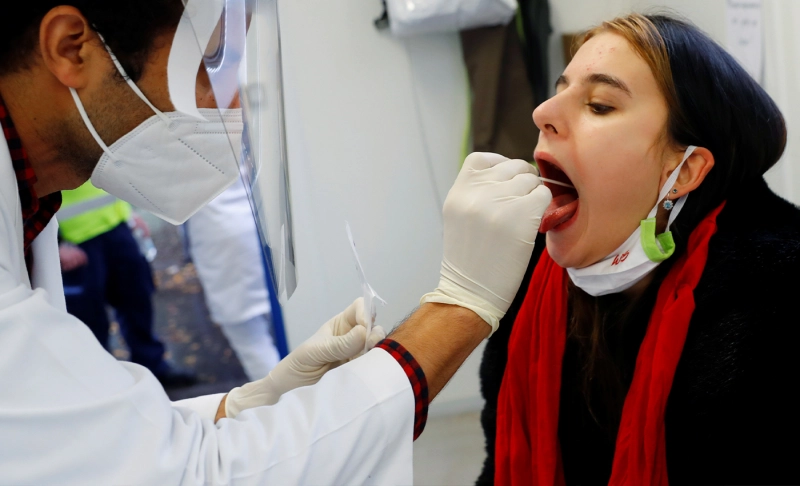By: Laura Vitelli
February 21 2022

The CDC used genetic sequencing to develop the initial PCR test in place of virus isolates.
A Twitter post circulating on social media claims that the PCR test for COVID-19 was not developed using isolated samples of the coronavirus and therefore does not actually test for COVID-19. The post suggests that PCR tests instead detect “something else.” This claim is partially false and therefore misleading. The widely shared tweet states: “FDA document admits ‘Covid’ PCR test was developed without isolated samples for test calibration, effectively admitting it’s testing something else.” Social media users who make this claim are citing the “instructions for use” document that accompanies the PCR (polymerase chain reaction) tests released by the U.S. Centers for Disease Control and Prevention (CDC) in early 2020. The “instructions for use” document states that “no quantified virus isolates of the 2019-nCoV were available for CDC use at the time the test was developed.” However, this does not mean that the PCR test does not detect the coronavirus, nor does it mean that the test detects “something else.” PCR tests are accurate despite the fact that isolated samples of the coronavirus were not available during the development of the test. The PCR test was developed using genetic sequencing, which is a common practice, according to Dr. Matthew Binnicker, the director of a Mayo Clinic virology lab. In a statement to the Associated Press news organization, Binnicker explained the reasons for the use of genetic sequencing in place of virus isolates. “During the initial days of an emerging disease outbreak, it may be difficult for public health laboratories (and diagnostic test manufacturers) to gain access to actual clinical samples from patients who are infected with a novel agent. This type of approach is not uncommon when a new diagnostic test needs to be rapidly developed during an outbreak of a novel pathogen, and it is scientifically accepted, robust, and legitimate.” A statement from July 2021, in which the CDC annouced it would be "retiring" the first PCR test, may have contributed to the misapprehension that PCR tests detect other coronaviruses (such as the flu) instead of COVID-19. In this statement, the CDC announced that it planned to replace the initial PCR test with a newer test that can detect multiple coronaviruses: “[The] CDC recommends clinical laboratories and testing sites that have been using the CDC 2019-nCoV RT-PCR assay select … transition to another FDA-authorized COVID-19 test. CDC encourages laboratories to consider adoption of a multiplexed method that can facilitate detection and differentiation of SARS-CoV-2 and influenza viruses.” It is important to remember that there is a lot of misinformation surrounding nearly every aspect of the pandemic. While no test is 100 percent reliable, the PCR test is considered accurate in detecting the presence of coronavirus. The COVID-19 pandemic has given rise to a lot of potentially dangerous misinformation. For reliable advice on COVID-19, including symptoms, prevention, and available treatment, please refer to the World Health Organization or your national healthcare authority.